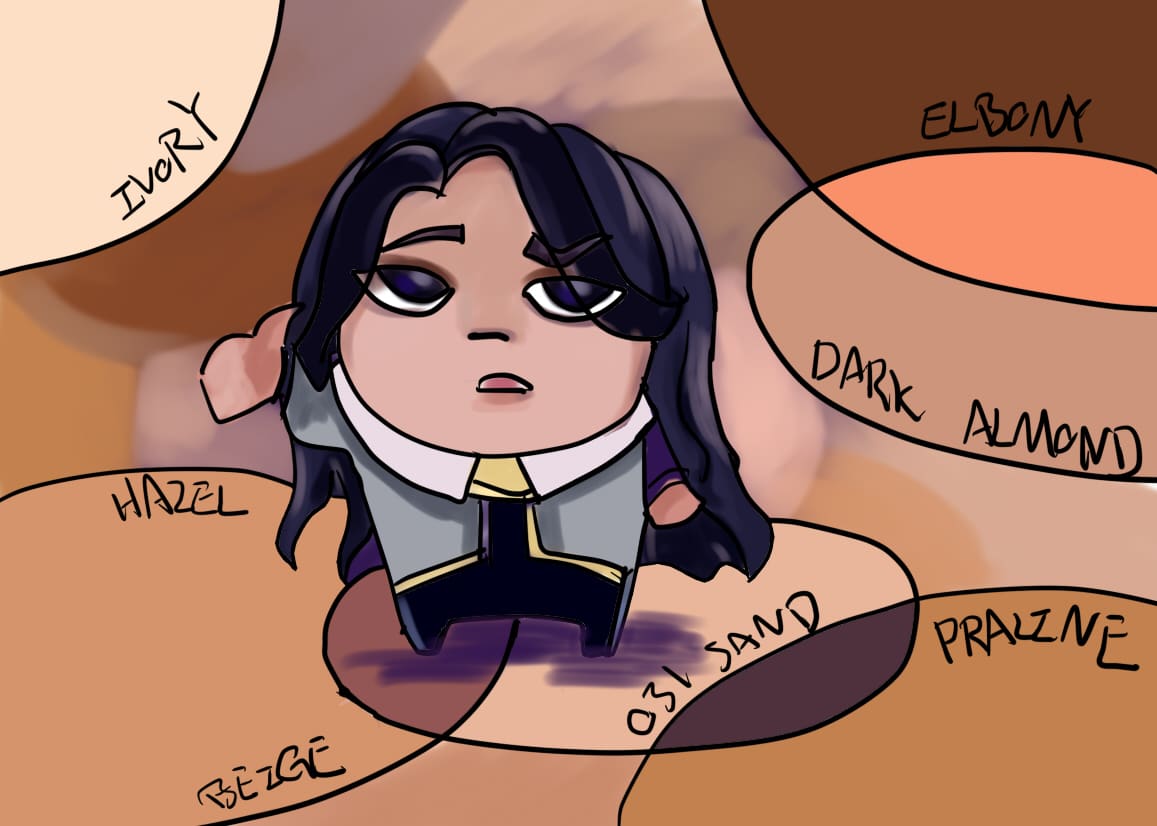My favorite joke to tell is when people ask for my last name, I say, “It’s the same color as my skin,” and watch while they squirm in silence for a few tense moments as they search for the right answer.
“Relax, I’m just messing with you. It’s White.”
I understand; categorizing people is hard and it makes me just as uncomfortable.
Everything and everyone — standardized tests, census records, people on the street — have asked me, “What are you?” My mom is Filipina, my dad is white and I’m both, yet neither at the same time. Even checking off boxes in a survey makes me uneasy. I’m too white to be Asian, too Asian to be white. For me, being mixed race doesn’t mean you have two (or more) identities — you have none. While society pressures us to declare our identities or pick a side, it’s not that simple. Racial identity can’t be as rigid as clear-cut survey boxes or it leaves out as many people as it tries to include.
Growing up, I’ve always been hyper-aware of my race and how others perceive me. I’m the black sheep no matter where I go. With my Filipino family, I stand out with my deep-set eyes, wavy hair and more Caucasian features. My aunts use the term “mestizo” — referring to someone of mixed Filipino and foreign ancestry — as a compliment. “You could be an actress in the Philippines! You’re maganda [beautiful] there,” they would tell me in English, because I can’t speak Ilocano.
Somehow, because I’m half white, there’s an unspoken higher standard my family holds me to, which I often fall short of. It’s less a critique of who I am than of who I should be because of my mixed race.
I’m not comfortable in predominantly white spaces either. Because of my ethnically ambiguous appearance, people mistake me for a variety of ethnicities, but not as white. I remember my first Thanksgiving with my dad’s side of the family — a holiday quintessentially American to them, yet foreign to a girl who had grown up culturally and socially Filipino. I had celebrated Thanksgiving before, but not like this. I didn’t know how to interact with them. Even the food betrayed me; why would you put marshmallows on sweet potatoes, and where was the rice? I spent a holiday meant to bring families together feeling like I didn’t belong.
Even if I do “pick a side,” I can’t escape my heritage. I’ve tried telling people that I’m just Filipina, but my throat tightens as if I’m caught in a lie. At the first Pilipinx United Students Organization (PUSO) meeting, my heart pounded and every fiber of my being screamed at me to leave because I didn’t belong. I didn’t consider myself Filipina enough despite eating pancit and lumpia, having a debut (a Filipina Sweet Sixteen, but for 18-year-olds) and traveling back to the Philippines to visit family in my mother’s village, Taccong. I feel like an imposter in my own culture.
I identify as POC and wouldn’t call myself white, yet on paper, that’s who I am: Kristine White. But that’s not my full name. I tuck away the Filipino aspect of my name because it’s too long for most documents, hard to pronounce and often confuses people. Kristine Lee Balong-Angey White becomes the more generic Kristine White.
If you’d never met me in person, you’d assume I was as white as my last name. There’s a privilege in that, especially in the job market. The irony of my name, however, still makes my stomach churn. I hesitate to apply for Asian-American scholarships or other programs because I don’t know if it’s my place. Half of me says I should still apply despite the awkward clarifications of my race, while the other half tells me to leave space for those who deserve it, being full POC.
I don’t know if I’ll ever be POC enough, or anything enough for others. I’m stuck in that sweet spot: white enough to taste privilege, but POC enough to have it just out of reach. Although I don’t experience discrimination to the same degree as some of my POC peers, I can’t sit idly on the side. In high school, when I spoke up on issues Asian-Americans face, some of my classmates said that because I’m only half Asian, it wasn’t my space. I want to use my privilege to help advocate with my POC peers, yet I worry that being half-white delegitimizes anything I’d have to say.
The more time I spend worrying about where I fit in, the less time I have to accept my identity as valid. Navigating where mixed-race people feel like they belong should be their own responsibility and choice. The population of mixed-race Americans is increasing three times faster than the population of the country as a whole, and with them, our stringent definitions of race will have to expand. I am half Filipina, half white, but more importantly, I’m a whole person.
Kristine White is a sophomore English major. She can be reached at kwhite2@oxy.edu.
![]()































